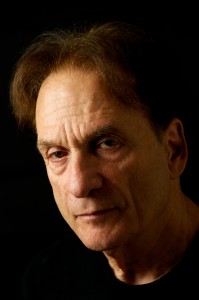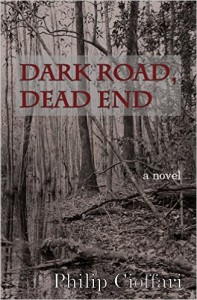8/10/2015—INTERVIEW WITH PHILIP CIOFFARI, AUTHOR OF DARK ROAD, DEAD END
8/10/2015—INTERVIEW WITH PHILIP CIOFFARI, AUTHOR OF DARK ROAD, DEAD END
Philip Cioffari’s novel Dark Road, Dead End, which I reviewed here  last month, piqued my interest in illegal animal smuggling so much that I couldn’t wait to ask Cioffari how he came up with the topic and what strategies, in both research and writing, he used to make the novel so compelling. His sense of the atmosphere of southern Florida and the good and evil that battle there had me hooked on the first page. Cioffari’s answers to my questions appear below.
last month, piqued my interest in illegal animal smuggling so much that I couldn’t wait to ask Cioffari how he came up with the topic and what strategies, in both research and writing, he used to make the novel so compelling. His sense of the atmosphere of southern Florida and the good and evil that battle there had me hooked on the first page. Cioffari’s answers to my questions appear below.
A multi-talented author, Cioffari has written novels, short stories, plays, and screenplays. His previous fiction works include Jesusville, A History of Things Lost or Broken, and Catholic Boys, all published by Livingston Press/University of West Alabama. His independent feature-length film, Love in the Age of Dion, which he wrote and directed, has won numerous film festival awards. Cioffari’s short stories have appeared in literary and commercial magazines and anthologies, and his plays have been produced off and off-off Broadway at the Chelsea Playhouse and the American Globe Theater, among others.
SW. How did you learn about the business of illegal animal smuggling? What made you think it was a good subject for a novel?
PC. I had been reading about it in newspapers and magazines for several years. I read several non-fiction books on the subject, most notably The Lizard King. A main reason for writing about it was to give the subject more exposure, make more people aware of it. It also seemed to lend itself perfectly to an adventure/suspense/thriller type of story.
SW. What sources did you use for the research Dark Road, Dead End must have required?
PC. I read extensively on the subject, material by government agencies as well as game wardens and other folks whose jobs involved protecting wildlife, talked to people who worked with animals, spent a lot of time in South Florida and the Everglades, in particular.
 SW. You open Dark Road, Dead End with the main character, Walter Morrison, convinced that his superiors in the Special Operations Division of the U.S. Customs Service are going to kill him. What suggested this plot development to you? Have there been actual Customs Service cases that raised this suspicion?
SW. You open Dark Road, Dead End with the main character, Walter Morrison, convinced that his superiors in the Special Operations Division of the U.S. Customs Service are going to kill him. What suggested this plot development to you? Have there been actual Customs Service cases that raised this suspicion?
PC. The plot was my invention. I simply extrapolated situations from other government agencies and applied them to the Customs Bureau. More specifically, I invented a special division of Customs for which my characters worked. My sense is that goodness and corruption coexist in every facet of human endeavor and as a writer I was interested in showing the dedicated little guy taking on a larger corrupt force.
SW. The south Florida setting is so pervasive in the novel it becomes another character. What do you think is the significance of setting in this and any story?
PC. Setting, for me, in any literary work is a crucial element. As you say, it is another character in the story, influencing the way characters behave and think. It also creates that necessary sense of verisimilitude, that what is happening is real. It’s a way of adding color, texture, symbolism. It can be a reflection of the characters’ thoughts, yearnings, etc. It can serve as a metaphor for theme. If I don’t have a strong sense of place, I really can’t write the story.
SW. When you write a story, do you start with setting, character, or something else?
PC. My impulses come from varied sources. Sometimes it’s setting, sometimes character, sometimes simply an image. In Dark Road, Dead End it was the overwhelming physicality of the Everglades that I wanted to capture, the sense of something important and dangerous happening there beneath the at times tranquil surface. I had this image of a loner (the main character, Morrison) moving upstream in the dead of night searching for something. From there, the story unfolded.
SW. Dark Road, Dead End takes place in four days. Was the timeframe always that short, or did you condense it as you revised? Why did you choose such a short timeframe?
PC. I like working in a tight time-frame. My other novels, Catholic Boys and Jesusville, and most if not all of my stories in A History of Things Lost or Broken unfold in short time spans. For one thing, it adds the kind of tension and intensity I like my work to have. Time is precious; the clock is always ticking. That gives the life of my characters a heightened urgency.
SW. Characters in the novel are all complex. Which one was the most difficult to bring to life? Which was the easiest? Why?
PC. Probably the most difficult was Pendleton, the corrupt agency official, because I knew him the least when I started writing. But once I got into his head and could see things from his point of view, I had an easier time. In my mind, I try to become each of the characters so I can understand why they do what they do.
SW. Is your approach to creating female characters different from your approach to creating male characters? If so, how?
PC. No. I use the same process as I described above. I try to get inside the mind and heart—what do they yearn for, what are their hopes and dreams and disappointments—and then go from there.
SW. Your writing includes novels, short stories, plays, and screenplays. Which do you prefer to write? Did you begin your writing career in one form and then branch out into the others?
PC. I began writing stories as a child: westerns, mysteries, baseball stories. From there I went to journalism (in high school), poetry, drama and screenwriting, creative non-fiction. I like writing in each of those genres, but I always come back to fiction.
SW. When you have an idea for a story, how do you know whether it’s best suited for a short story, novel, play, or screenplay?
PC. Gut instinct.
SW. What type of fiction do you read mostly? What are some specific titles that are your favorites?
PC. Graham Greene (The Heart of the Matter; The End of the Affair), William Faulkner (The Sound and the Fury), Tennessee Williams (all of his work, plays and stories), Flannery O’Connor, Carson McCullers (The Ballad of the Sad Café) are among my favorites. Newer writers like Kem Nunn and Newton Thornburgh, as well.
SW. As a reader, what makes a story or novel memorable for you?
PC. The degree to which a writer can make me feel and see what is happening. Characters who reflect the complexity of human nature.
Sally Whitney
Sally Whitney is the author of When Enemies Offend Thee and Surface and Shadow, available now from Pen-L Publishing, Amazon.com, and Barnesandnoble.com. When Enemies Offend Thee follows a sexual-assault victim who vows to get even on her own when her lack of evidence prevents police from charging the man who attacked her. Surface and Shadow is the story of a woman who risks her marriage and her husband’s career to find out what really happened in a wealthy man’s suspicious death.
Sally’s short stories have appeared in magazines and anthologies, including Best Short Stories from The Saturday Evening Post Great American Fiction Contest 2017, Main Street Rag, Kansas City Voices, Uncertain Promise, Voices from the Porch, New Lines from the Old Line State: An Anthology of Maryland Writers and Grow Old Along With Me—The Best Is Yet to Be, among others. The audio version of Grow Old Along With Me was a Grammy Award finalist in the Spoken Word or Nonmusical Album category. Sally’s stories have also been recognized as a finalist in The Ledge Fiction Competition and semi-finalists in the Syndicated Fiction Project and the Salem College National Literary Awards competition.
- Web |
- More Posts(67)